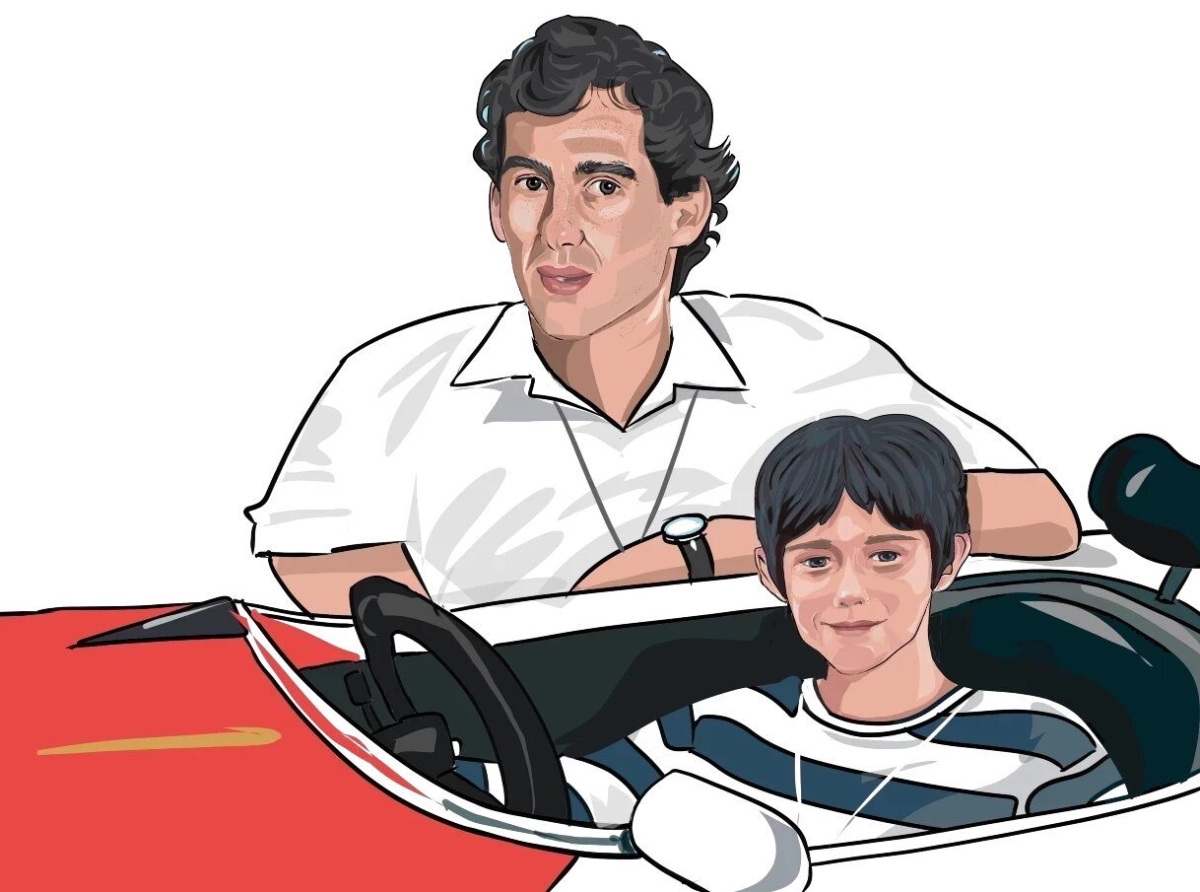Dubai’s Quiet Influence on the Modern Athlete
In the global economy of sport, attention often follows medals and score...
Feb 04, 2026

Amid a media landscape, The Monegasque™ magazine, a Monaco-based publication, distinguishes itself by offering public figures a platform to speak in their own voice. The magazine forgoes the usual filter of journalists, opting instead to publish first-person essays from individuals who are typically more seen than heard. The result is a publication where cultural figures, athletes, and descendants of dynasties do something increasingly rare: they write.
Among the contributors is Brazilian Formula One driver Bruno Senna, nephew of the late Ayrton Senna, who shares his story in the article 'The Magic of Senna: Continuing My Uncle’s Legacy in Monaco.'
Bruno Senna was born in São Paulo in 1983. His earliest memories, he writes, are of karting, engines, and helmeted heroes - chief among them, his uncle Ayrton, a three-time Formula One World Champion and six-time winner at Monaco. After Ayrton’s fatal crash at Imola in 1994 and the later death of Bruno’s father, any early aspirations toward racing were put on pause.
It wasn’t until the encouragement of his mother, Viviane Senna, and family friend Gerhard Berger, that the younger Senna returned to motorsport. He entered Formula One in 2010 with Hispania Racing and later raced for Renault and Williams. His best result came at the 2011 Canadian Grand Prix, where he finished eighth.
In 2010, Senna moved to Monaco. The Principality, long a hub for Formula One drivers, offered proximity to racing circuits, the same streets where his uncle had built much of his reputation.
That same year, Senna won the GP2 Feature Race in Monaco, putting the family name atop a Monte Carlo leaderboard for the first time since 1993.
Senna’s essay in The Monegasque™ is personal. He reflects on life in Monaco beyond the paddock: meeting his wife, raising a daughter, and working with the Princess Charlene of Monaco Foundation. There are no grand statements - just a steady accounting of life lived forward, with the past never far behind.
The Monegasque™ itself has published original contributions from Jermaine Jackson, Evander Holyfield, H.R.H. Prince Michel of Yugoslavia, and Archduke Carl-Christian of Austria. Other contributors include Joe Foster, co-founder of Reebok; Alberto Repossi, the jeweler; Chico Bouchikhi, co-founder of the Gipsy Kings; artist Laura Chaplin, the granddaughter of Charlie Chaplin; and Formula One’s rising driver Oscar Piastri.
The magazine’s editorial philosophy is simple: let the people who’ve lived the story tell it. For Bruno Senna, that means stepping out of the shadow of a surname long immortalized in racing history - not by distancing from it, but by continuing it with precision, patience, and his own words.
More from The Monegasque™ contributors can be found at monegasque.com
Disclosure: Dubai Voice enhances the editing process with the help of carefully selected AI tools. These tools provide valuable support without taking over the editing process completely, ensuring that the final product is the result of human creativity and expertise augmented by the benefits of enhanced technology. This article is protected under the copyright of Dubai Voice. Unauthorized reprinting, republishing, or rewriting of this content is strictly prohibited without explicit permission from Dubai Voice. Quotations from this material are permissible provided that a direct link to the full article on Dubai Voice is included.